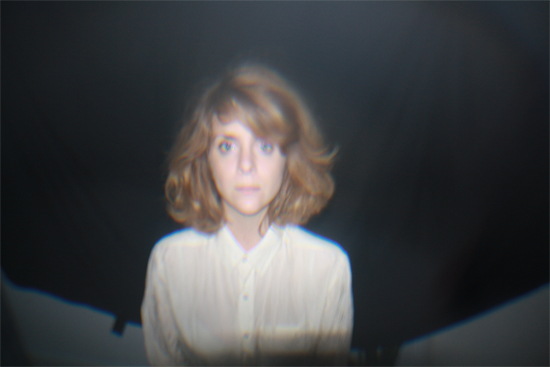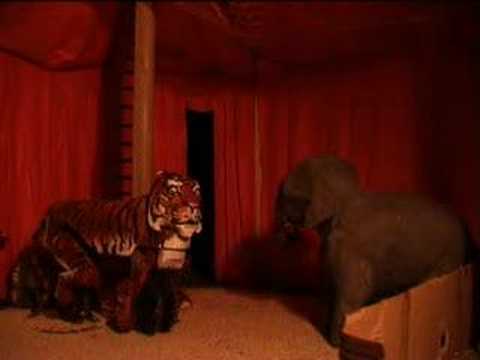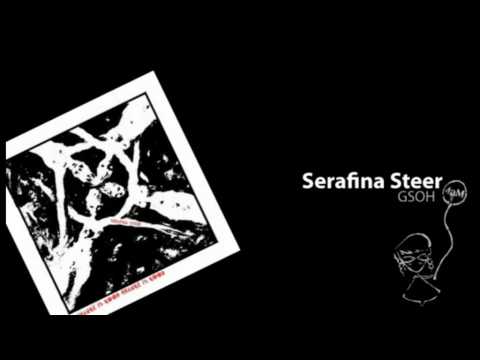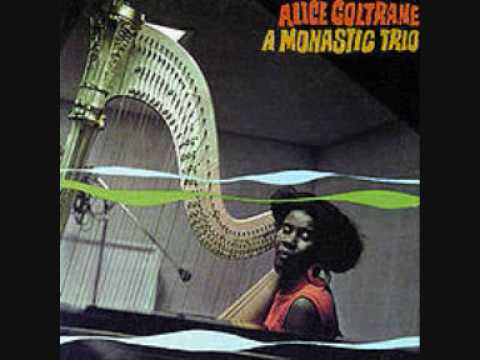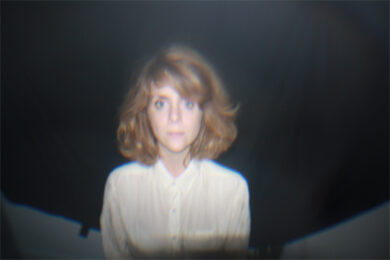Like the protagonists of her songs, London based harpist Serafina Steer is thoughtful and charmingly unguarded in conversation. We’ve squeezed in a meeting at Candid Cafe while she’s busy putting the finishing touches on a live soundtrack for the Branchage Film Festival in Jersey. She has an unruly nest of light brown hair, large doe eyes and doll-like features. But in contrast to her often placid and restrained music, her mind darts quickly from idea to idea like a humingbird. She seems to have an inherent curiosity for new things, and a hint of ambition, which have allowed her to develop quickly as an artist.
As a classically trained musician turned pop songwriter, comparisons with Joanna Newsom are obvious, but misleading. While Newsom’s songs are often twee and overly busy, Steer is interested in more understated, elegant compositions and more mature themes – telling stories and addressing more complex, darker emotions. She also has increasingly adventurous tastes – using a Brian Eno cover as the first track of her 2007 debut album, Cheap Demo Bad Science, speaks not only of an interest in electronics, but also in setting moods and using sounds to paint aural pictures.
With the help of her producer and collaborator, Benge, she explored more electronic songs on Change is Good, Change is Good. She has also played synths as part of John Foxx’s backing band and provided harp parts for Chrome Hoof and Patrick Wolf among others. Steer appears to take something from each of these collaborations, constantly augmenting and rethinking the core songwriting style she developed at music college.
Naturally, she is defined by a tension between classical and pop but resists the classification of folk because of her more contemporary musical background. We talk about various styles of music but she without fail describes her own style with the suffix "harp”. Serafina is currently developing a more elaborate style of playing she hesitantly refers to as “psychedelic harp” on her next album.
Can you talk a little bit about how you made the transition from classical education to pop music?
Serafina Steer: I started writing songs when I was 21. I was doing some classical things and in college you are really either a classical instrumentalist or a composer or a jazz musician. And obviously most people don’t fit into one of those three categories. So I sort of ended up doing mostly improvised things or contemporary music, but that wasn’t really me either. I was also incredibly jealous of a few friends who did write songs, and I couldn’t figure out why I felt this howling white frustration [mimes howling white frustration] watching them play gigs. So with some of them we put on this night called 1001 Songwriters or some other college-y thing, and the response was really good. Once I’d caught onto it, it felt like a quite natural thing.
Is there a conservative element in the classical community, where once you acquire this knowledge you are looked down on if you go over to the pop world?
SS: No, I don’t think so. Well, possibly, but someone that really loves music should not mind what genre it’s in. Perversely though, I sometimes find it more on the other side: there’s this funny stigma that I’m a trained musician’ and I can ‘read music’. But I don’t feel like there’s any big advantage for me in terms of going into a studio and coming up with something for someone’s song, or this or that.
What came first – the harp playing or the singing?
SS: The harp. Well… [cocks her head, considering] Singing, I suppose. But only because everybody sings. I mean, I started playing the harp when I was 9 and stopped singing for a long time.
But did you receive training for the singing
SS: No, I had some singing lessons when I was really little and always did lots of music – sometimes choirs. No, I never really had singing lessons. [under her breath] You can probably tell [laughs].
Did your interest in electronics come before your work with John Foxx?
SS: Yeah, but the electronics [are] really coming along with doing all this business of ‘psychedelic harp’ – with this film score, and my next album, and that’s totally going to a territory I’ve never been to before. Having this set up and a laptop and being really technical.
So you’ve also worked with Chrome Hoof, Antony and the Johnsons and Patrick Wolf.
SS: Actually it’s a sort of red herring that I worked with Antony and the Johnsons, I only did support for him. But the other ones… Well Chrome Hoof are, all the musicians in that band – individually there are so many brilliant different strands of interests and expertise, and it’s been brilliant to get to know them more. So things like that are really good because there’s so much stuff out there that I’ve not heard.
Patrick Wolf, he’s different because he’s like a fucking song machine, and I mean that super complimentarily. I mean, you can be in the studio with him and he’s got so many ideas. I’ve not been involved in Chrome Hoof’s writing that much; I’ve not witnessed it. Normally we’ll have an idea of a harp bit of some sort that I’ll come up with in collaboration with them. It’s just different roles.
All those people, as you’ve said, make widely varying music. So are there any musical influences we might not expect from you?
SS: Well, I don’t know what you do expect.
Well, as in Chrome Hoof has a lot of metal in it…
SS: Yeah. Well, metal I haven’t explored very much, but certainly sort of post-punk things and [pauses] ‘prog’. I feel like I’m more happy to be influenced by things than I used to be, and in fact quite excited to be thinking about things conceptually. I never had an idea outside of how I was writing music, but now I’m experimenting more with actual sounds on the harp and production, and that’s got me excited about that and less involved in the more purely acoustic singer-songwriter thing.
Could you talk about what you mean by ‘psychedelic folk’ or ‘psychedelic harp’? because psychedelic can mean so many things these days?
SS: Yeah, I know, and I should find a different name for it. It was only a working name, but I just had this idea that I wanted to write much bigger songs for this album.
So getting into… I don’t know the exact right term, ‘psychedelia’ or ‘prog-folk’, and I know there’s loads of people who have done it. Like Gentle Giant – who’ve just written incredible compositions and in a really brilliant tradition, and outside that funny English folk thing, but then at the same time totally English.
And then Alice Coltrane, I’ve always called her playing ‘psychedelic’ harp. It’s funny because she just plays modes and glissandos and really uses the different pedal settings, and they’re always called something like ‘cosmic love boat’ – quite transcendental. I’ve always been intrigued by that way of using the harp: effects and tampering with the sonorities.
When you are writing songs, do you write them kind of as yourself or do you inhabit a character?
SS: Oh, that’s interesting because I have been experimenting with characters. I do, and didn’t so much, but I’ve been doing more [of that when] writing with other people and for projects. I find that quite liberating – to imagine that you’re a sort of, I don’t know, disco diva, or chanteuse, or a man, and it completely changes what comes out
And can you tell us a bit about the event you’re going to do at Branchage.
SS: Well initially they just asked about doing a live soundtrack to a film, but I’d already done one of those sort of projects, and didn’t really want to do another old black and white thirties film, because I don’t really get that. I mean, it’s amazing what people come up with, but I wanted to do something contemporary but redo the soundtrack. One of them was by those two brothers – Street of Crocodiles?
The Quay brothers
SS: Yeah. So I wrote to them and they wrote back immediately and said ‘No. Find someone else to experiment on.’ Which I found quite funny [laughs]. And it’s outrageous, but I thought ‘Of course – why would they want someone they don’t know to just dick around with their films?’ But I was watching Kenneth Anger’s Rabbit Moon and I thought the music with it worked so brilliantly but it could also work totally differently. But we couldn’t get permission to do that either, so now I realise why everyone is doing these old films.
Because the directors are all dead.
SS: [laughs] Yeah. So my brother and I decided to make a new film that’s loosely inspired by Rabbit’s Moon, because that uses these commedia dell’arte characters. So we thought taking those and some inspiration from his film, and reworking it in an animation with our own story, which is quite bonkers, and hopefully should be interesting.
One of the main elements we wanted to take from the Kenneth Anger film was this complete sort of unresolvedness about what’s going on, or the surrealness of what’s going on. Sometimes the film is more engaging your attention, and sometimes the music is more engaging your attention, and not everything adds up.
Serafina and Sam Steer will present This Side of the Moon along with a programme of short animations at the Branchage Film Festival in Jersey this weekend. Please visit the Branchage Website for details.
Header photo by Russell Weekes

